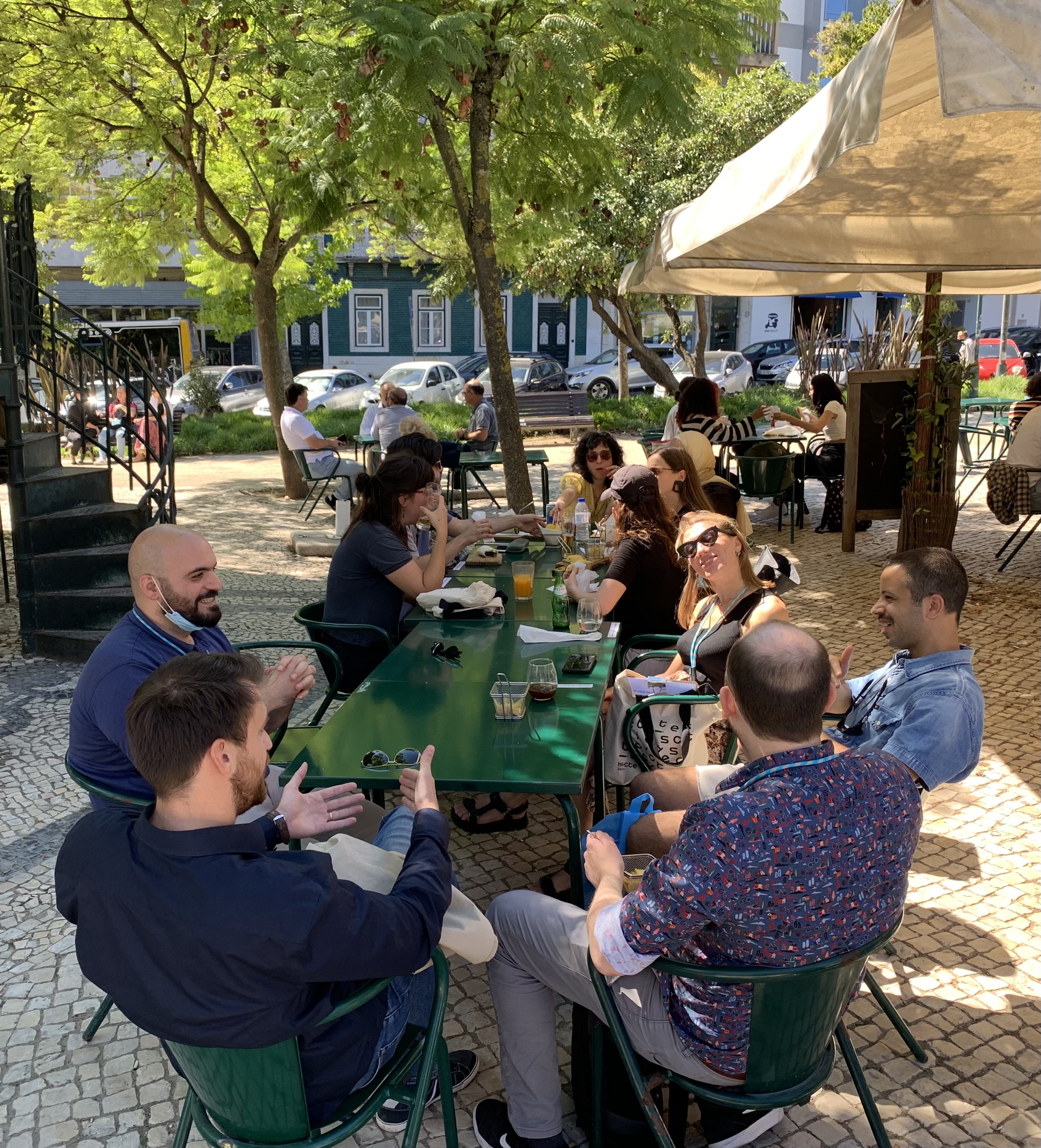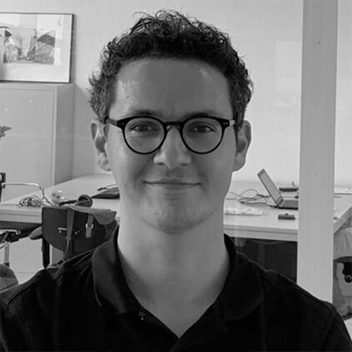Lisbon as an all-round learning experience
Posted on 29-09-2021
When trying to contemplate the first RE-DWELL workshop in the Portuguese capital, the first thing that comes to mind is that it was such an all-round learning experience. Not just because our joint programme included round-the-clock activities, but mainly because we touched upon so many different subjects, perspectives and case studies. At one moment a philosophical debate arose about flat ontologies, while seemingly the next moment the practical applicability of Building Information Modeling (BIM) would be the subject of discussion.
The more philosophical debate took place during a Roundtable - not pictured on the left, which was a leisurely lunch on our first day - with Professor Clapham (University of Glasgow), Professor Debizet (University Grenoble Alpes), Professor Petrescu (University of Sheffield) and Professor Salama (University of Strathclyde). These renowned academics gave their views on the concept of transdisciplinary research for affordable and sustainable housing, which helped us to grasp the concept even better. But besides a clarification, in a way the speakers also challenged us.
As Clapham (2018, p. 176) puts it: “there is scope to design a theory of housing that may be drawn partly from existing concepts that fit the housing context, as well as through the design of concepts that emerge from the specific nature of housing itself. Although the production of a specific, transdisciplinary theory of housing is not practicable at the current state of knowledge, it should be a major priority to derive and test out the specific concepts that are needed to build the theory.” This is where the RE-DWELL team should pick up the gauntlet, try to overcome monodisciplinary paradigms, work together to redefine key concepts interdisciplinarily and eventually build these up into universal transdisciplinary knowledge.
An important element of a transdisciplinary approach is the integration of non-academic stakeholders, and this first workshop in Lisbon immediately demonstrated how valuable this is. Field visits and guided tours make a research project come alive and inspire you in ways that scientific articles are not capable of. But first and foremost, conversations with practitioners, policymakers and in-house researchers can help ESRs to design their methodology in a way that could truly address societal challenges.
A good example is how a municipality official (affiliated with the pioneering BIP/ZIP programme) contested the notions of ‘top-down’ and ‘bottom-up’ governance, and explained by means of obvious examples how this dichotomy is not found in practice. These conversations are instrumental in transdisciplinary research and make us all look forward to our secondments even more.
Reference
Clapham, D. (2018). Housing theory, housing research and housing policy. Housing, Theory and Society, 35(2), 163-177.


